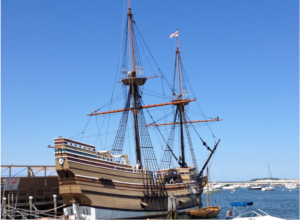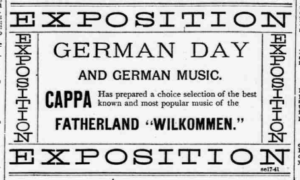
Early in November 1620, after a rough Atlantic crossing of about two months, an aging ship called Mayflower arrived in the coastal waters of what we today call Cape Cod Bay. By mid-December, the colonists had chosen a site they called Plymouth, which is about 40 miles south of the current city of Boston. Although English colonization had begun further south in the Chesapeake Bay area over a decade earlier – not to speak of even earlier Spanish and French efforts – the arrival of the Mayflower is frequently imagined by many in American mainstream society as the founding moment of the United States. Largely spurred and popularized by the Thanksgiving holiday, this founding myth all too often minimizes the impact of colonization on the indigenous peoples of the region; theirs is a history that hides in plain sight.







